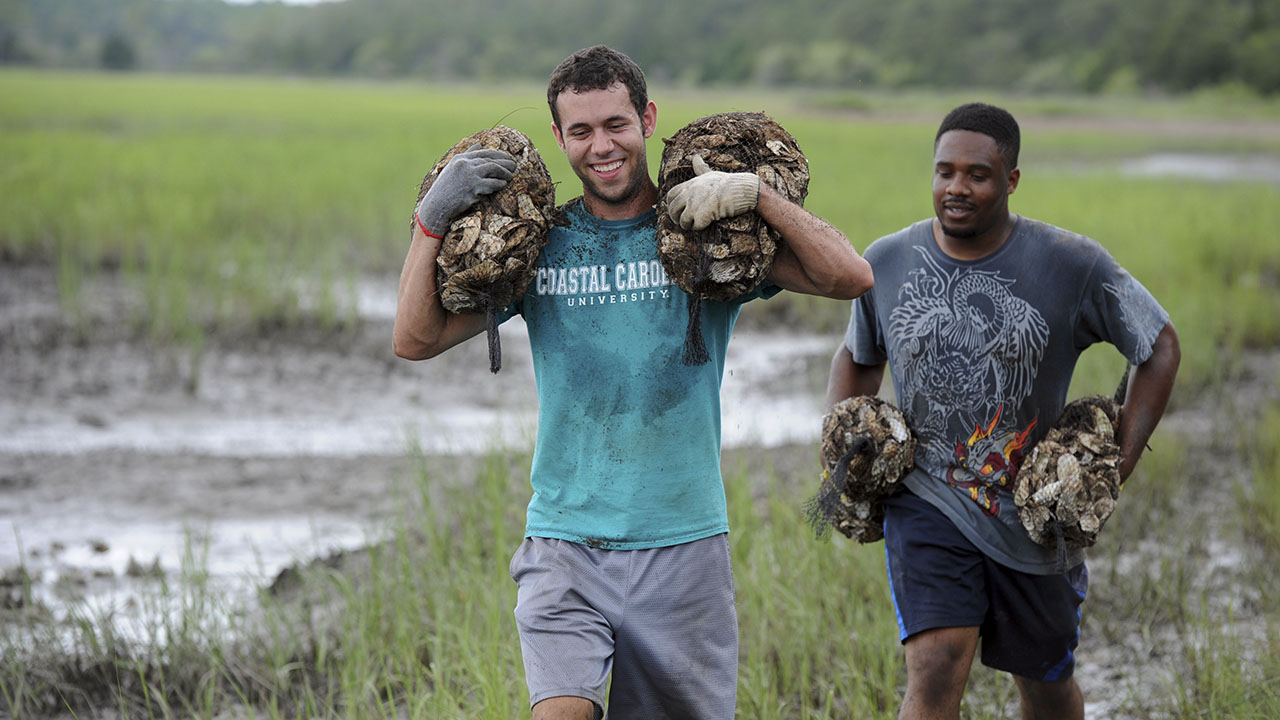2024 - 2025 Undergraduate Catalog [ARCHIVED CATALOG]
Marine Coastal Environmental Science, B.S.
|
|
 Return to: Degree and Program Offerings (A-Z) Return to: Degree and Program Offerings (A-Z)

 |
 |
APPLY NOW
|
REQUEST INFO
|
The B.S. in marine coastal environmental science (MCES) will provide knowledge and practical training for students to quantitatively and critically evaluate and address marine and coastal environmental topics within an interdisciplinary framework encompassing at least two marine science sub-disciplines. This degree builds on a broad quantitative natural science foundation (biology, chemistry, mathematics, physics) with focus on one marine science sub-discipline (biology, geology, chemistry, or physical oceanography). Students will integrate and apply these fundamental concepts to conservation, management, economic, and policy topics related to modern marine and coastal environments. The MCES degree will train students who are interested in marine and coastal aquatic, environmental, and/or conservation subjects and their practical quantitative application to real world scenarios for related entry level positions and/or graduate study in marine, coastal, and environmental research, management, education, planning, law, and/or policy at government agencies, universities, and private industry firms.
Student Learning Outcomes:
Students who graduate with a B. S. in marine coastal environmental science should be able to:
- Explain the principles, concepts, and inter-relations of the natural sciences (biology, chemistry, geology, physics) with conservation, management, economics, and policy as applied to the marine and coastal environment and related resources;
- Apply the principles of scientific inquiry to describe, analyze, and solve scientific problems involving marine and coastal habitats, resources, and issues;
- Exhibit proficiency in the use of technology, critical thinking, and quantitative tools used in marine and coastal environmental science, natural resource management, and/or policy applications;
- Communicate effectively with peers, mentors, and the larger community, and
- Successfully pursue entry-level jobs or enter graduate programs in related fields.
Students should declare one focal marine science sub-discipline (physical oceanography, marine biology, marine geology, or marine chemistry) by the end of the third semester at Coastal Carolina University or before completion of 45 credit hours for application toward the MCES B.S. Students should take the MSCI 300 level core course lecture and laboratory within their focal sub-discipline (MSCI 301/301L, MSCI 302/302L, MSCI 304/304L, or MSCI 305/305L) as well as one additional lecture and laboratory pair from these courses (MSCI 301/301L, MSCI 302/302L, MSCI 304/304L, or MSCI 305/305L) for 8 total credits.
Double Majors: Students may double major in any CCU program which offers a bachelor’s degree. To complete a double major, students must satisfy the major requirements for both programs and complete a minimum combined total of 48 upper-level credits in the two majors, all with a grade of ‘C’ or better. MCES students that complete a second major in MSCI may apply the eight required 300 level foundation credits in MSCI (MSCI 301/L, MSCI 302/L, MSCI 304/L, and/or MSCI 305L) and up to four additional 300 or 400 level MSCI elective credits for a maximum total of 12 shared credits between the MCES and MSCI degrees.
|